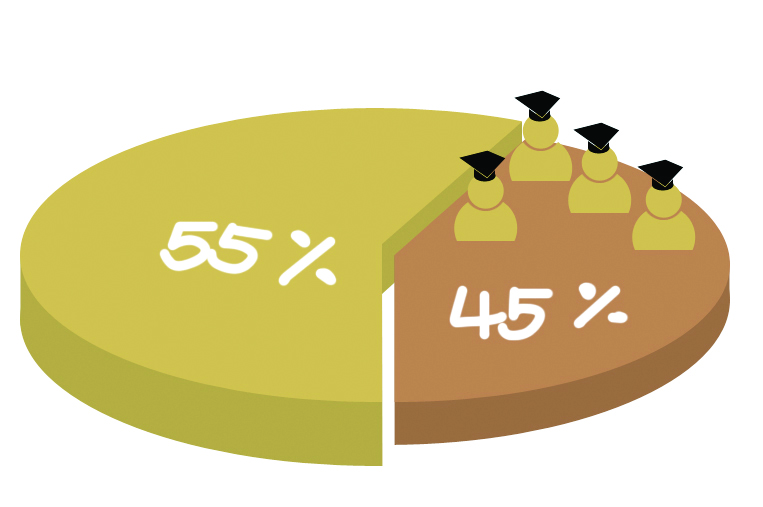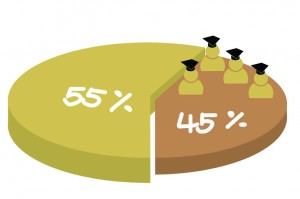Students taking more time to graduate


With only a month of school left, many students who are near graduation are asking themselves the inevitable question: “What happens next?”
For some, the following months will consist of relentless job hunting, while for others, it will be preparing for graduate school or some sort of college program. However, a large portion of fourth-year students will actually be enrolling back at University for another year and research is starting to show that this is not an uncommon choice.
The Higher Education Quality Council of Ontario (HEQCO) released a report discussing the time it takes for students to graduate with a bachelor’s degree.
A 2011 statistic cited in the report, uncovered by McMaster University professors, Martin Dooley, Abigail Payne, and Leslie Robb, found that only 45 per cent of students complete a degree by their fourth year of study.
A total of 74 per cent of grads will achieve a degree by their fifth year and 80 per cent of students will get it in six.
“I don’t think what [Dooley, Payne, and Robb] found was particularly surprising,” said Alex Usher, president of the Higher Education Strategy Associates (HESA), the team that released the report. “I think we’ve known for a while that basically most students who are graduating are doing it in the normal time of completion plus one.”
Usher went on to say that Canadian universities did not always have the standard four-year system. He explained that around 15 years ago, many Canadian institutions actually offered three-year programs.
“I think one of the nice things about North American higher education is that we’re quite flexible,” Usher continued. “People don’t realize that it costs universities quite a lot to have that kind of flexibility.”
With regards to the specific reasons why a student would choose to stay in school for longer than the four-year duration, a lot of it has to do with the student’s schedule and workload.
Bonnie Patterson, president and CEO of the Council of Ontario Universities (COU) explained that many students are taking advantage of getting involved in leadership activities.
“Even though they are taking longer to get the degree, they are setting up a better basis for future employment,” she said.
Many students enroll in co-op opportunities, internships, international experiences, varsity athletics or student government, for example..
Patterson also explained that there are other students who go through their education with the understanding of what they wish to refine or specialize in. So in many cases, those opportunities require a combination of college and university integrated programs.
“I see many research programs right now looking at forms of partnerships between colleges and universities,” Patterson elaborated. “In some situations, institutions are designing programs where students can both benefit from a degree and a diploma.”
Patterson emphasized a direction towards more flexibility and mobility within curricular design.She also noted there is also a trend toward enrollment in post-degree programs to add specialization to undergraduate degrees.
“They want a four-year degree behind them so they develop the communication skills or the problem solving skills,” she said.
Usher, however, believes that the future of higher education might result in shortened degrees, eventually going back to the three-year system. No matter how long it may take a student to eventually attain their “piece of paper,” there is an emphasis on individuals finding what they’re good at and specializing on these preexisting abilities.
“[It’s about] rewarding people for doing a certain amount of work, not being in class for a certain amount of hours,” Usher said.

